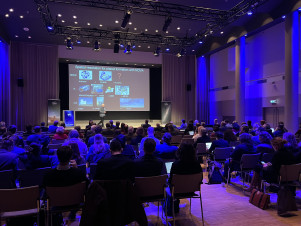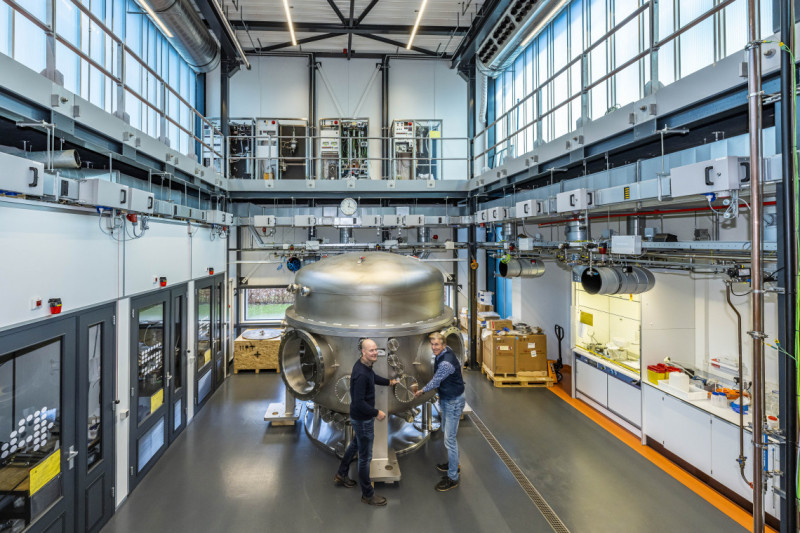NOVA 25 Symposium
12-12-2024 - 13-12-2024
NOVA 25 Symposium
The NOVA 25 Symposium, celebrating 25 years of the Netherlands Research School for Astronomy (NOVA), took place on 12-13 December 2024 at the World Forum in The Hague. The two-day event highlighted NOVA’s achievements in astronomy, including science breakthroughs, advanced instrumentation, and industry collaborations. Modern day astronomy is all about collaboration, within The Netherlands (NOVA), within Europe (European Southern Observatory ESO, with the Very Large Telescope and Extremely Large Telescope), and globally (NASA-ESA Space Observatories like James Webb and Habitable Worlds Observatory). The Netherlands is a champion in such collaborations.
The program featured presentations on NOVA-supported discoveries, including imaging Black Holes using the Event Horizon Telescope array, BlackGEM’s exploration of the transient universe, Euclid’s insights into dark matter and energy, and groundbreaking findings from JWST-MIRI.
A key session was dedicated to the link between the NOVA instrumentation program and industry. This showcased the need for industrial involvement at the current scale of instrumentation projects like the ELT and space programs. Dutch contributions to the ELT include the primary mirror segment support structures (TNO, VDL, NOVA) and the Laser Projection System to create artificial guide stars for adaptive optics (Demcon, TNO). Over 70 companies in The Netherlands participated with NOVA in the development of the MIRI Spectrograph Main Optics for JWST. For ELT instrumentation under development at NOVA, this number has already doubled and is still increasing.
In the evening, attendees enjoyed the NOVA 25 Omniversum show, an immersive planetarium experience celebrating Dutch astronomy’s major discoveries. This festive gathered highlights NOVA’s public outreach and its role in inspiring new generations of scientists. Visitors were able to stare for a long time at the mesmerizing details of the night sky, as captured by the recently launched Euclid spacecraft. Additionally there was a presentation on the development of next-generation instruments for the Extremely Large Telescope: METIS and MICADO.
The symposium concluded with reflections on NOVA’s contributions to global astronomy and the future of collaboration between academia, industry, and society. This event offered a unique platform for scientists, industry partners, and the broader public to engage with groundbreaking astronomical advancements.



